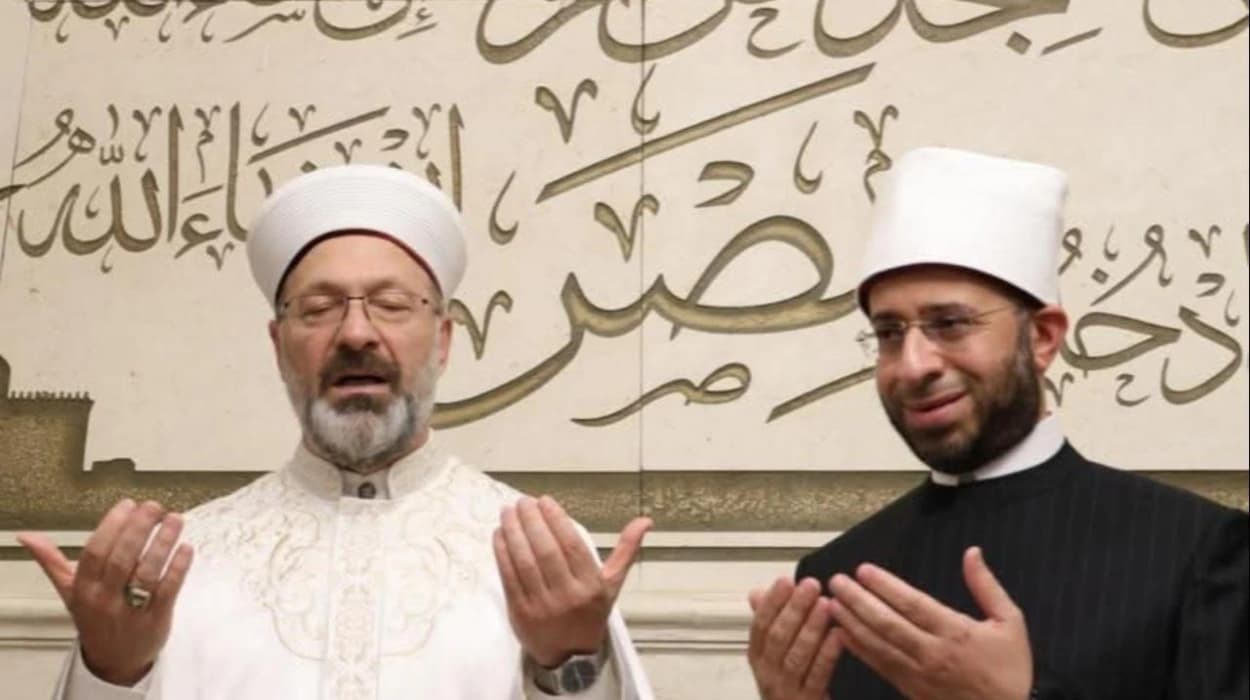The Turkish President of Religious Affairs emphasised that
Ankara and Cairo hold significant potential to alleviate the hardships faced by
Palestinians amid ongoing crises. His call underscores a collaborative regional
approach to addressing humanitarian issues in Palestine.
What did the Turkish President of Religious Affairs say about Ankara and Cairo’s role?
As reported by various sources, the Turkish President of
Religious Affairs highlighted the critical role that both Ankara and Cairo
could play in mitigating the suffering experienced by Palestinians. He pointed
out that cooperation between Turkey and Egypt could facilitate effective
humanitarian aid and political support to Palestinians amidst current challenges,
reflecting a shared regional responsibility to address the plight of
Palestinian people.
Why is there a focus on Ankara and Cairo in easing Palestinian suffering?
The emphasis on Ankara and Cairo stems from their strategic
geographical and political positions in the Middle East, where they serve as
influential actors capable of driving diplomatic and humanitarian efforts.
Turkey, through Ankara, has increasingly positioned itself as a defender of
Palestinian rights on international platforms, while Egypt, through Cairo,
exercises considerable influence over the Gaza Strip due to its border and
historic ties.
Both countries have the capacity to mobilise resources and
mediate in conflicts that exacerbate Palestinian suffering, making their
collaboration crucial for regional stability and humanitarian progress.
What is the context of the Palestinian suffering referred to?
The hardships faced by Palestinians are multifaceted,
encompassing economic deprivation, limited access to healthcare and education,
restrictions due to ongoing conflicts, and periodic escalations in violence.
The recent strains on Palestinian communities—whether due to blockade, military
confrontations, or political instability—have intensified humanitarian
concerns, necessitating urgent and coordinated responses from regional powers.
How could this collaboration between Ankara and Cairo practically manifest?
While detailed operational plans were not specified by the
Turkish President of Religious Affairs, experts suggest that cooperation could
include coordinated aid deliveries, joint diplomatic actions to restore peace,
and advocacy in international forums for Palestinian rights. These countries
might also work together on reconstruction projects and provide support to
refugees and displaced persons within the Palestinian territories.
What reactions have there been to the Turkish President's statements?
Though direct reactions from Egyptian authorities or
Palestinian representatives were not included in the initial reports, analysts
view the Turkish statement as part of Turkey’s broader diplomatic effort to
assert leadership in Middle Eastern affairs. It also signals a potential thaw
or initiative to engage Cairo in collaborative efforts that could yield more
substantial regional involvement in resolving Palestinian issues.
What is the significance of a religious affairs leader making this political statement?
The involvement of the Turkish President of Religious
Affairs in making such a statement reflects the intertwining of religious
leadership and political diplomacy in Turkey. His perspective underscores the
moral and ethical imperatives perceived by religious institutions to support
oppressed communities. It also lends additional weight to Turkey’s
international positioning by invoking religious solidarity alongside political
strategy.
Are there precedents for Ankara and Cairo working together on Palestinian issues?
Historically, Turkey and Egypt’s relations have experienced
fluctuations, but both have intermittently engaged on matters concerning
Palestine, including mediating ceasefires and providing humanitarian aid.
Recent geopolitical shifts and renewed diplomatic communication may create new
openings for deeper cooperation.
What challenges could hinder Ankara-Cairo cooperation for Palestinians?
Potential obstacles include political differences, regional
rivalries, and internal pressures within each country that may impact foreign
policy decisions. Egypt’s relations with other Middle Eastern countries and its
security concerns about Gaza differ at times from Turkey’s approach,
potentially complicating collaboration. Moreover, external influences by other
regional powers and global actors also affect the scope of such cooperation.
What does this mean for the future of Palestinian humanitarian aid and diplomacy?
If Ankara and Cairo can adequately harness their roles as
advocates and providers for Palestinians, there could be significant
improvements in humanitarian aid delivery and conflict mediation efforts. A
successful partnership might inspire broader regional alliances and increased
international support. However, this depends on political will, trust-building,
and tangible actions beyond statements.
